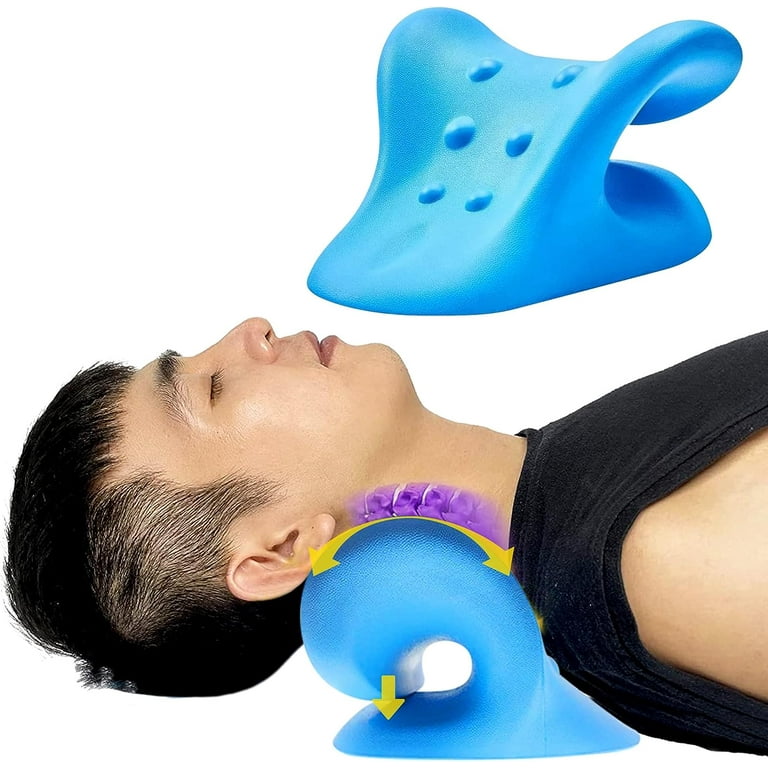The Impact of Tension on Neck Pain: Strategies for Minimizing Stress and Discomfort
In today's fast-paced globe, it's clear that tension has ended up being a common element in the beginning and worsening of neck pain. The intricate connection between anxiety and muscle tension commonly leaves individuals looking for relief from the discomfort that ensues. By discovering targeted methods targeted at decreasing tension and promoting relaxation, one can start to resolve the root triggers of neck discomfort and work towards a more balanced state of health. Join us on a journey to decipher the impact of tension on neck discomfort and discover reliable means to minimize pain and boost general high quality of life.
Recognizing Stress-Related Neck Discomfort
Neck discomfort is a typical problem that can usually be credited to stress. Stress-related neck pain can show up as tension, tightness, or pain in the neck and shoulder location. The link between stress and anxiety and neck discomfort exists in the body's physiological response to stress and anxiety, which can lead to muscle mass stress and tightness in the neck muscles. Chronic tension can cause relentless neck pain and aggravate status quo like cervical spondylosis or muscle mass strains.

Identifying Common Stress Areas
Often experienced by individuals under tension, stress areas in the body can offer beneficial insights into the physical manifestations of psychological strain. One usual stress area is the neck, where stress commonly materializes literally. Stress headaches, stiff neck muscle mass, and restricted variety of activity are usual signs and symptoms of stress-related neck tension. The shoulders are another typical area where tension gathers. Anxiety can cause the muscles in the shoulders to tighten, bring about discomfort and pain. In addition, the upper back is vulnerable to tension accumulation, especially in individuals that experience chronic tension. Poor pose and long term sitting can exacerbate tension in this field. The jaw is additionally an usual place for stress-related stress, as many individuals clinch their jaw or grind their teeth when worried. Recognizing these common stress locations can help individuals acknowledge the physical indications of anxiety and take actions to address them prior to they escalate right into chronic discomfort or discomfort.
Executing Leisure Methods
Leisure methods are useful devices for minimizing neck pain caused by stress and anxiety. Additionally, activities like yoga and tai chi incorporate both physical motion and relaxation, making them reliable techniques for decreasing stress and neck pain. By including these relaxation techniques right into your everyday regimen, you can aid manage stress and anxiety degrees, decrease stress in the neck, and alleviate pain associated with stress-induced neck discomfort.
Incorporating Self-Care Practices
Including self-care techniques is necessary for maintaining total well-being and handling stress-related neck discomfort successfully. Taking part in regular exercise, such as mild stretching exercises or yoga, can assist relieve stress in the neck and shoulders. Exercising excellent posture throughout the day and taking regular breaks from long term resting or screen time can also avoid stress on the neck muscles.
Furthermore, focusing on sufficient sleep and establishing a regular rest routine can contribute dramatically to lowering this post stress degrees and promoting leisure. Creating a relaxing going to bed routine, such as checking out a book or taking a cozy bath, can help prepare the body and mind for relaxing rest. In addition, maintaining a balanced diet regimen abundant in nutrients and staying hydrated can support overall wellness and reduce inflammation that may aggravate neck index pain.
Including mindfulness methods, such as deep breathing workouts or meditation, can aid manage anxiety and advertise leisure. Taking some time for oneself, taking part in hobbies, and setting borders to secure individual time are likewise vital aspects of self-care that can add to lowering stress and easing neck discomfort.
Seeking Expert Assistance
Just how can people effectively attend to consistent neck pain that is influencing their day-to-day live and well-being? Seeking expert help can be a crucial action in handling and relieving neck pain. Consulting with healthcare specialists such as chiropractors, physiotherapists, or orthopedic experts can offer useful understandings and personalized treatment strategies. These experts can conduct comprehensive evaluations to detect the underlying reasons for neck discomfort and recommend appropriate interventions.
Chiropractic practitioners specialize in spinal manipulation strategies to enhance alignment and lower stress in the neck area. Physical therapists supply targeted stretches and workouts to strengthen muscular tissues, improve adaptability, and boost total neck feature. Orthopedic experts can provide sophisticated clinical interventions such as shots or medical choices for severe instances of neck pain.
Conclusion

Stress-related neck discomfort can show up as tension, stiffness, or discomfort in the neck and anchor shoulder location. The link in between tension and neck pain exists in the body's physiological feedback to stress, which can result in muscular tissue stress and tightness in the neck muscle mass. Stress frustrations, rigid neck muscular tissues, and limited array of movement are common symptoms of stress-related neck stress. By including these relaxation strategies right into your day-to-day regimen, you can help manage anxiety degrees, lower tension in the neck, and ease pain connected with stress-induced neck pain.
